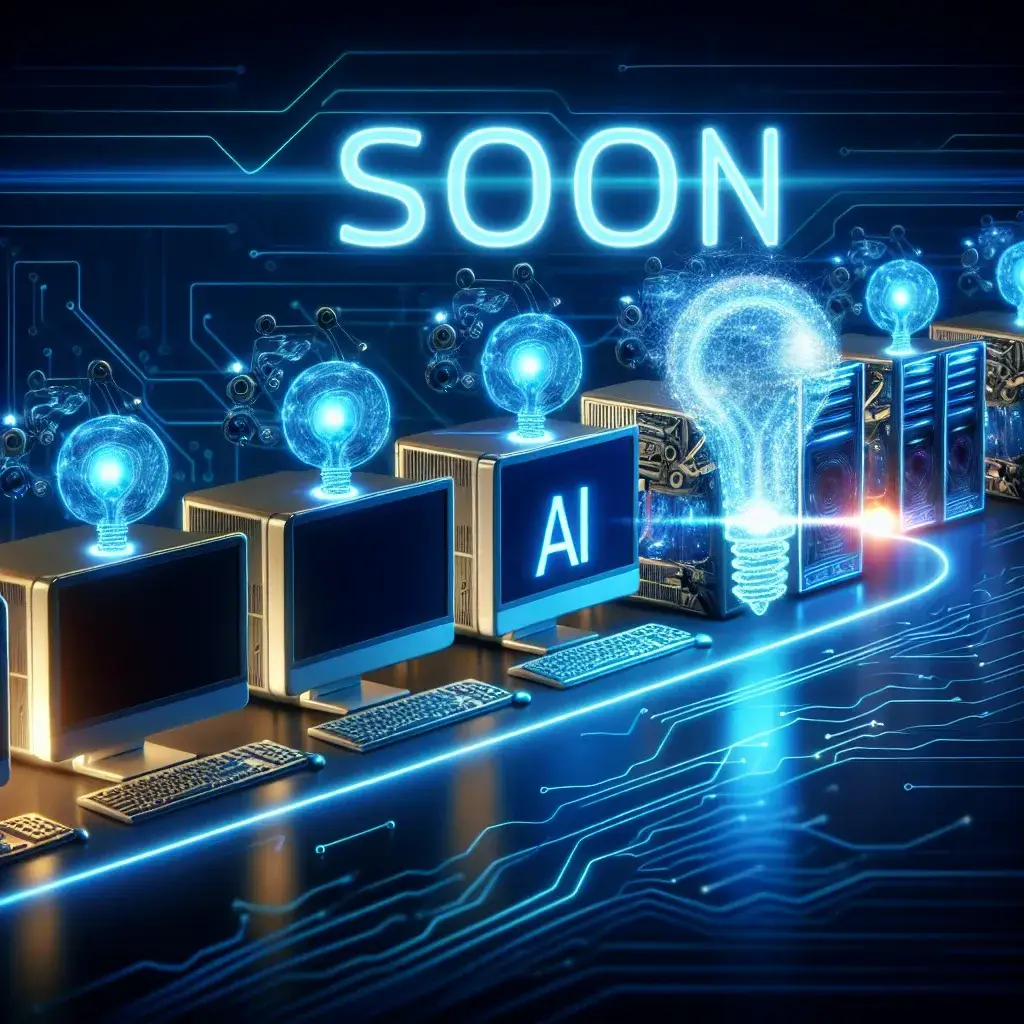The AI Revolution: A New Era for Personal Computers
In the rapidly evolving world of technology, the buzz surrounding artificial intelligence (AI) continues to escalate. Intel executives recently made a groundbreaking announcement stating that all personal computers (PCs) are set to become AI-enabled in the near future. This revelation not only highlights the increasing integration of AI into our everyday devices but also marks a significant turning point in how we will interact with technology.
Understanding AI Integration in PCs
AI integration into PCs signifies the incorporation of machine learning, natural language processing, and neural network capabilities directly into personal computing experiences. This transformation aims to enhance user experience, streamline workflows, and introduce smarter functionalities that cater to individual needs.
What Does AI-Enabled Mean for PCs?
Being AI-enabled means that PCs will possess the ability to learn from user interactions, making them adaptive and responsive. Here are some of the key features that users can expect from AI-enabled PCs:
- Personalized User Experience: AI algorithms will analyze user behavior, preferences, and habits, tailoring the operating system and applications to enhance productivity.
- Enhanced Security: AI can identify unusual patterns and potential threats, providing stronger security measures against cyberattacks.
- Improved Performance: Machine learning can optimize system resources dynamically, ensuring smoother multitasking and efficient processing of complex tasks.
- Natural Language Processing: Voice recognition and virtual assistants will become more intuitive, allowing users to interact with their PCs using natural language commands.
A Historical Context: The Evolution of PCs
The journey of personal computers began in the 1970s, with humble beginnings as basic text editors. Over the decades, advancements in hardware and software have paved the way for more complex functionalities. The introduction of the internet revolutionized how PCs were used, leading to the development of applications that support various tasks from gaming to professional work.
The 2000s saw the advent of mobile computing, and with it, the rise of laptops and tablets. However, the most significant shift is now on the horizon, as AI promises to take computing capabilities to unprecedented heights.
Future Predictions: What to Expect
As AI technology continues to advance, experts predict several key trends concerning AI-enabled PCs:
- Seamless Integration: AI features will be embedded in the operating system, allowing for a smoother user experience without the need for additional software installations.
- Cloud Computing Synergy: The collaboration between AI-enabled PCs and cloud computing will enhance processing power, enabling complex computations and data analysis remotely.
- Remote Work Solutions: With the rise of remote work, AI will help optimize virtual collaboration tools, facilitating better communication and project management.
- Accessibility: AI will provide tools to assist those with disabilities, enabling more inclusive access to technology.
Pros and Cons of AI-Enabled PCs
While the future of AI-enabled PCs appears promising, it is essential to weigh both the advantages and challenges:
Pros:
- Increased Efficiency: Tasks that usually take time can be completed faster with AI assistance.
- Enhanced Decision-Making: AI can analyze vast amounts of data, providing insights that would be difficult for humans to discern.
- Customization: AI algorithms offer personalization that can lead to greater satisfaction and productivity.
Cons:
- Privacy Concerns: The collection of user data for AI learning raises significant privacy issues.
- Job Displacement: Automation and AI may lead to job losses in certain sectors, prompting fears of economic disruption.
- Dependence on Technology: Over-reliance on AI could diminish critical thinking and problem-solving skills.
Expert Insights
Industry leaders within Intel have expressed excitement over the potential of AI-enabled PCs. According to a senior Intel executive, “The integration of AI into personal computing will redefine user experience, making our devices not just tools but intelligent companions that evolve with us.” This perspective underscores the belief that AI’s role will extend beyond mere functionality to becoming an integral part of our daily lives.
Real-World Examples of AI in Computing
Several existing technologies provide insight into the potential of AI in PCs. For instance:
- Smart Assistants: Voice-activated assistants like Cortana, Siri, and Google Assistant are early examples of AI’s role in personal computing.
- Predictive Text: AI-driven software applications can predict user inputs, improving typing efficiency.
- Image Recognition: Applications that identify objects and people in photographs demonstrate the power of AI in enhancing creative tasks.
Cultural Relevance and Impact
The global shift towards AI-enabled PCs also reflects broader cultural trends. As society becomes increasingly reliant on technology, the expectations for devices to adapt and learn from user habits will grow. This evolution will necessitate discussions around ethical responsibility in AI development and deployment.
Moreover, in educational settings, AI-enabled PCs can revolutionize learning by providing personalized educational experiences, thus catering to various learning styles and needs.
Conclusion: Embracing the AI Future
The declaration by Intel executives that all PCs will soon be AI-enabled is a harbinger of a new era in personal computing. By embracing AI, we stand on the cusp of a transformative journey that promises to enhance our interaction with technology. As we prepare for the changes ahead, it is essential to consider both the opportunities and challenges that accompany this transition.
Whether for personal use, business, or education, the prospect of AI-enabled PCs invites us to envision a future filled with innovation, efficiency, and personalized experiences. As we move forward, we must engage with these technologies thoughtfully, ensuring that they serve to enrich our lives rather than complicate them.

